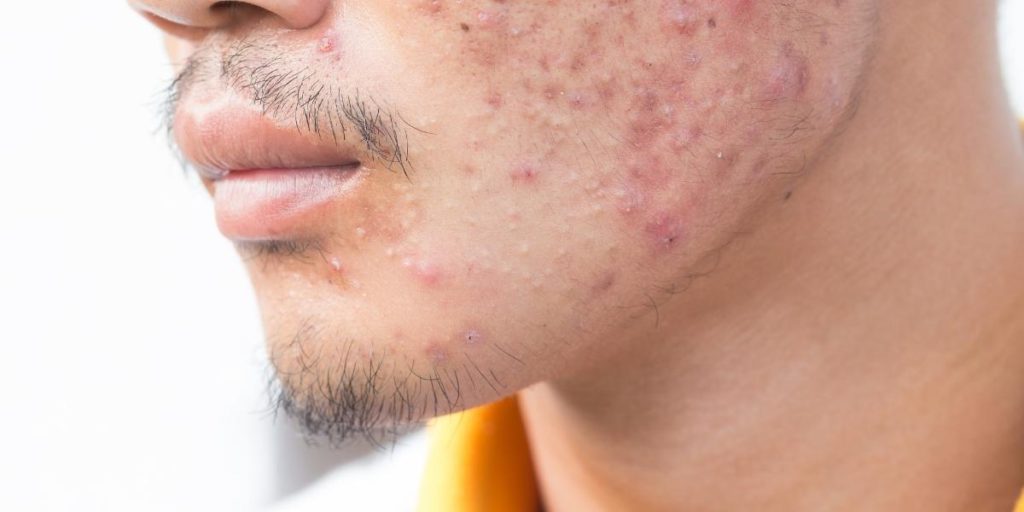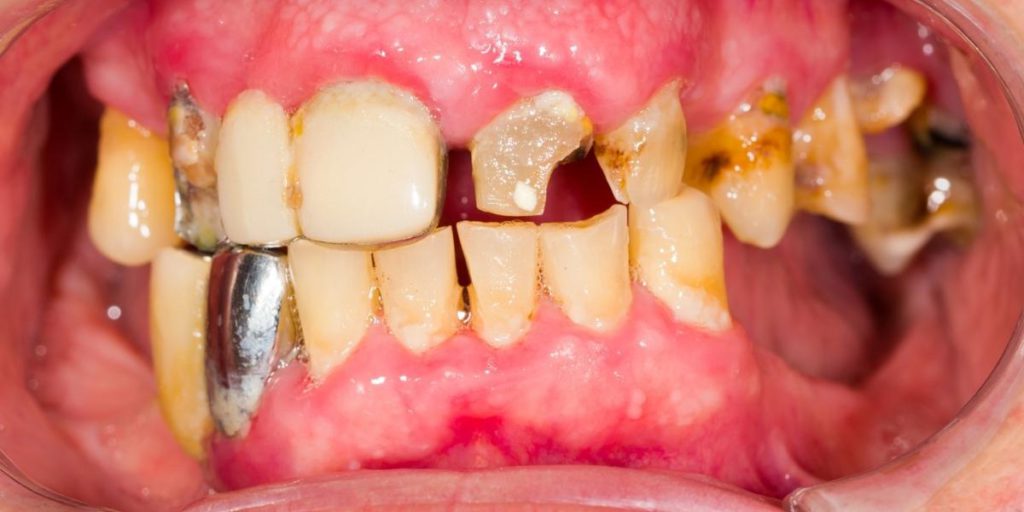Signs of Meth Use

Methamphetamine, or meth, is a highly addictive stimulant rapidly becoming one of the most abused substances in the world. Classified by the U.S. Drug Enforcement Administration (DEA), meth is a schedule II drug that can be smoked, snorted, injected, or eaten. Knowing the common signs of meth use, even the early ones, can help stop addiction and save at least one person’s life.
In the United States, addiction experts and law enforcement compare the high addiction and overdose rates of methamphetamines to the spread of heroin and other opioids. It is becoming an urgent public health crisis.
Besides being addictive, meth is popular because it is cheap and widely available.
Unlike other drugs that require a supply chain and production process, meth is relatively easy to cook up in meth labs using combinations of legal ingredients.
The National Institute on Drug Abuse (NIDA) reports that 1.5 million people per year will be diagnosed with methamphetamine use disorder. Countless others will struggle with meth addiction without a diagnosis or entering treatment programs.
What Is Meth?
Methamphetamine, meth or chalk, is a potent and addictive stimulant that comes in a powder and can be smoked, snorted, injected, or eaten. Crystal meth, or ice, is a type of meth that is sold in hard crystal form.
People who use meth often report that the initial high is the most intense feeling of euphoria they’ve ever experienced, followed by increased alertness, energy, and sex drive. Meth has such an immediate, powerful, and long-lasting effect that many people say they became addicted to meth after their first time trying it.
Meth quickly reaches the brain and causes a rush of dopamine, which causes the overwhelming feeling of pleasure. Dopamine, often called the “feel good” hormone, produces feelings of happiness, reward, and motivation.
The more frequently a person abuses meth, the less of a high they’ll experience and need a more significant amount of meth to feel anything. Chasing that initial high while building tolerance and using meth to avoid withdrawal eventually consumes a person’s life, mind, and body.
Signs of Meth Use
Statistics from the National Survey on Drug Use and Health (NSDUH) showed that meth overdoses increased by 180% between 2015 to 2019, but the number of people who admitted to abusing meth increased by only 43%. This disparity highlights the stigma and denial surrounding meth addiction.
Signs of meth use won’t start with the worst, most apparent symptoms. Like all addictions, people will often try to lie and hide their use until it’s no longer possible.
Meth use progresses much quicker than other addictions, taking a tremendous toll on mental and physical health with noticeable signs. Identifying the signs and symptoms of meth use can be the key to helping your loved one realize they have a problem and getting them help.
Physical Signs of Meth Use
Visible physical signs of meth use can be a direct side effect of the drug or the impact of repeated use. The long-term physical toll on appearances is one of the most known side effects for people who have abused methamphetamines because of anti-drug ad campaigns like Faces of Meth.
Physical signs of meth use include:
- Facial tics
- Teeth grinding
- Bloodshot eyes
- Jerky movements
- Scratching or picking at skin
- Facial sores
- Slow-healing wounds
- Sweating
- Burn marks on hands and around the mouth
- Needle marks
- Damaged teeth
- Sagging or loose looking skin
- Reduced appetite
- Noticeable weight loss
- Coughing
- Thinning hair
Psychological Signs of Meth Use
Much like the physical symptoms of meth use, the psychological signs of meth addiction directly result from the drug and complications of repeated abuse.
Psychological signs of meth use include:
- Agitation
- Mood swings
- Paranoia
- Hyperactivity
- Erratic and unpredictable behavior
- Disrupted sleep patterns
- Risky sexual behavior
- Stealing
- Hallucinations
- Self-harm
- Memory loss
- Severe periods of depression
- Suicidal thoughts

What Is Tweaking?
Tweaking is the last stage of a meth binge. After several or more days of constant use, meth users can’t get high or feel the rush from meth anymore.
Meth abuse happens in what experts call “binge and crash” patterns— extended periods of use, followed by several or more days of withdrawal symptoms. The most intense and dangerous signs and symptoms of meth use are apparent when someone is tweaking, even to people unfamiliar with them. Tweaking occurs at the end of the binge stage, right before the crash.
At the end of a binge, a “tweaker” is often up for days, experiencing anxiety, insomnia, and drug cravings, even if they are still actively using. It is not unusual for them to use alcohol and drugs when they’re tweaking to feel euphoric effects and escape the feelings of withdrawal.
Signs of tweaking include:
- Extreme insomnia
- Visual and auditory hallucinations
- Tactile hallucinations, or a false sensation of touch, often of bugs crawling on or being under the skin
- Extreme paranoia
- Breaks with reality
- Violent behavior
- Intentional self-harm
- Accidental self-harm due to hallucinations
Once a person stops tweaking and crashes, they usually sleep for several or more days, with periods of being very hungry and thirsty while their body tries to recover. Eventually, the drug cravings will return, and without addiction treatment, the cycle will repeat.
Long-Term Effects of Meth Addiction and Abuse
Long-term meth addiction and abuse can alter the brain’s chemical makeup and have lasting physical consequences.
Long-term health and psychological effects of meth addiction include:
- “Meth mouth,” rotten or missing teeth
- Respiratory issues
- Persistent memory loss
- Malnutrition
- Digestive issues
- Kidney failure
- Fertility issues
- Impaired cognition
- Decreased motor skills
- Depression
- Paranoia
- Hallucinations
- Anhedonia, or the inability to feel pleasure
- Heart disease
- High blood pressure
With proper medical care and time, many of these issues can be managed or resolved, but a person needs to overcome their addiction and be committed to recovery. Addiction centers and medical professionals can provide resources and treatment recommendations for people addicted to meth.
Health Risks
Using meth involves many health risks, including physical and mental changes and secondary risks resulting from the behaviors and habits of using meth.
Health risks of meth use and addiction include:
- Sexually transmitted infections
- Infectious diseases from sharing needles and paraphernalia
- Chronic infections
- Dental problems
- Mental decline
- Increased risk of Parkinson’s disease
- Increased risk of strokes
- Increased risk of heart attack
- Atherosclerosis, or the narrowing and hardening of arteries
Withdrawing from meth can also pose a health risk. Seeking professional help and addiction treatment is always the safest option. Doctors frequently recommend treatment facilities that offer medical detox followed by inpatient treatment for the best chance of overcoming addiction.

Evidence-Based Treatment Center for Meth Addiction
If you or a loved one is struggling with meth addiction and substance abuse, help is available.
At Northridge Addiction Treatment Center, we offer an empowering and supportive environment to heal from addiction and learn how to live in recovery. We provide medical detox with 24-hour medical care and medication-assisted treatment at our residential treatment facility to withdraw safely and foster your confidence to continue into the next treatment steps.
Our licensed and compassionate staff are dedicated to creating a personalized treatment plan to help you develop effective coping strategies and skills that promote lasting freedom from addiction.
NATC can help start you on a path to life-long recovery. Contact us today.
Find Meaningful Recovery
Our caring and compassionate specialists are eager to help you comfortably navigate this journey to recovery. Our individualized treatment plan, programs, and therapies may be a perfect match for you or your loved one. Let us assist you in living the happy life you deserve. It starts with a phone call.




